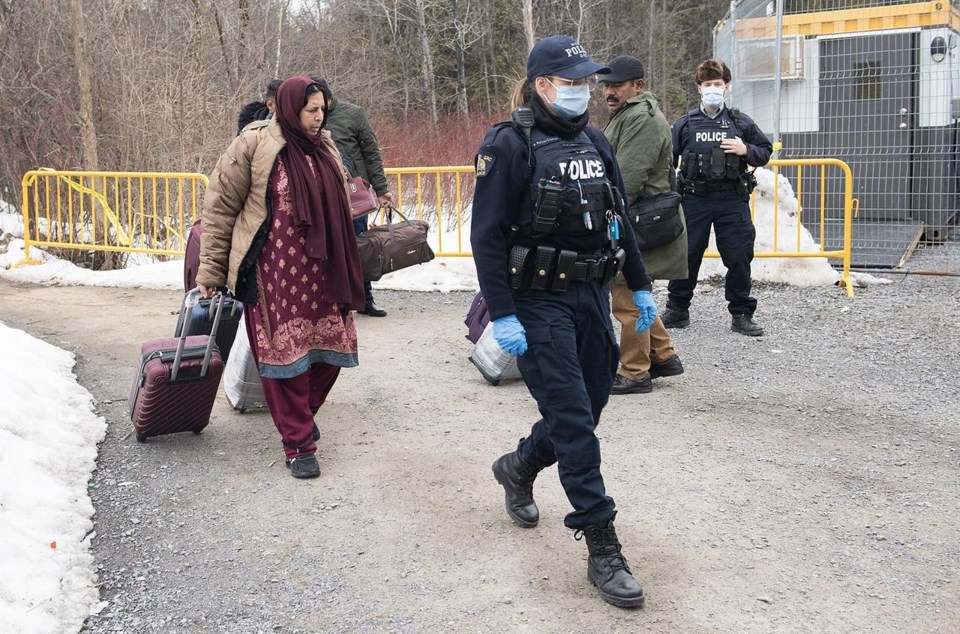ST. JOHN'S, N.L. — Ninety-four asylum seekers who entered Canada through an irregular border crossing in Quebec are now in Newfoundland and Labrador, where the provincial government hopes they'll secure the legal right to stay.
But a St. John's lawyer specializing in immigration says it will be an immense challenge for them to settle legally, especially since there are no permanent federal immigration employees in the province who can help them.
"It's a huge problem," Michele Grant said in a recent interview. "When we have rejections, there is nobody we can call .... there is nobody we can send them to."
Asylum seekers from Roxham Road began arriving in St. John's in mid-March, shortly after Gerry Byrne, the province's immigration minister, said Newfoundland and Labrador would happily welcome them. They came on commercial flights that were paid for by the federal government, his department said in an email.
By June 19, 94 people had landed. They come from 17 different countries and collectively speak more than 11 languages, Byrne said. Ottawa has no plans to send any more, his department said.
Newfoundland and Labrador has long battled a dwindling population, and the province has leaned heavily on immigration to fill the gaps. Byrne said the province is providing the Roxham Road arrivals with school for their kids, income support and legal help, with the hope they'll be able to stay and build new lives. Ottawa is providing them with temporary accommodations, he added.
Byrne, too, said the province is in dire need of federal immigration officials who can help people — refugees or otherwise — with their applications to stay in the country.
"Just someone to pick up the damn phone," he said in a recent interview.
An emailed statement from Immigration, Refugees and Citizenship Canada said "more than 20" employees work in Newfoundland and Labrador.
"By agreement with the province, an IRCC employee is on site (five) days a week at the temporary accommodation, providing support to the claimants, liaising with our service providers and working with local stakeholders," the statement said, adding that Ottawa is supporting the refugee seekers with services and health care.
Byrne, however, said the federal immigration employees in the province are tasked with other jobs and aren't available to help people applying to stay.
Roxham Road is a forested pathway that bisects the border between Canada and the United States in rural southern Quebec. Thousands of asylum seekers have crossed into Canada from that route. Authorities shut it down March 25 after the two countries reached a deal to close a long-standing loophole in the Safe Third Country Agreement.
That agreement forces asylum seekers to apply for refugee status in the first "safe" country they enter — Canada or the U.S. — and prohibits them from crossing the border to file a claim. The loophole, however, had enabled them to apply from Canada if they entered the country through an irregular crossing, like Roxham Road.
Grant said the asylum seekers in Newfoundland and Labrador "have a hard road ahead of them."
If their bids for refugee status fail, there are other legal options they could pursue, such as extending a visitor's visa, she said. But they still must overcome complex legal processes, massive backlogs within the federal Immigration Department and a lack of federal officials on the ground in St. John's, she said.
Byrne said he is also concerned about the hurdles ahead for the would-be refugees.
"They have no legal status, and it may be deemed by a judicial system that they have no right to stay here. That is a profound possibility," he said.
"I hope that each and every one of them possess the legal capacity to be here."
This report by The Canadian Press was first published June 30, 2023.
Sarah Smellie, The Canadian Press




